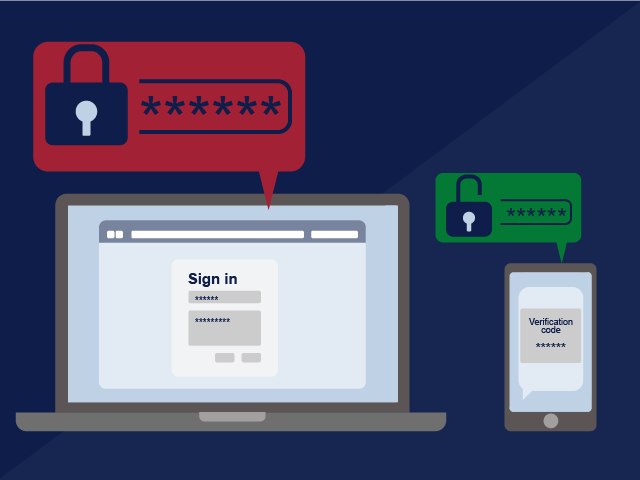As Black Friday approaches, millions of shoppers are eagerly anticipating the best deals of the year. However, with the excitement of securing deep discounts comes the very real threat of cybercrime. The UK’s National Cyber Security Centre (NCSC) has issued a stark warning to consumers, urging them to stay vigilant as they navigate the online shopping world during this high-risk period. Cybersecurity experts have highlighted the alarming rise in online scams, which have led to significant financial losses in previous years. With more sophisticated methods of deception emerging, shoppers must be more cautious than ever to avoid falling victim to fraudulent schemes.
Here's ads banner inside a post

A Growing Threat: The Rising Tide of Online Fraud
Figures released by Action Fraud, the UK’s national fraud and cybercrime reporting center, reveal that last year alone, over £11.5 million was lost to online fraud during the festive period, with losses rising by nearly £1 million from the previous year. The NCSC’s call for heightened awareness comes as consumers are set to embark on their seasonal shopping sprees, with many seeking out the best deals available online. While the prospect of bargains is enticing, it also opens the door for cybercriminals to target unsuspecting shoppers.

Here's ads banner inside a post
The allure of online discounts, combined with the anonymity of the internet, creates an ideal environment for fraudsters. Many online scams are designed to prey on consumers’ emotions, capitalizing on the fear of missing out (FOMO) or the excitement of finding a limited-time offer. The stakes are high, and with scammers employing increasingly sophisticated techniques, it has become harder to distinguish between legitimate offers and fraudulent ones.
The Role of Two-Factor Authentication in Protecting Your Accounts
In response to the growing threat, the NCSC has launched a nationwide campaign to promote online safety, advising consumers to take proactive steps to protect themselves from fraud. One of the key recommendations is the implementation of two-step verification (2SV) on important accounts, such as those linked to banking, shopping, or social media. By adding an extra layer of security, 2SV ensures that even if a hacker has access to a user’s password, they cannot easily gain entry to the account without the second factor of authentication—typically a one-time code sent to a phone or email.

Here's ads banner inside a post
According to Richard Horne, the CEO of the NCSC, setting up 2SV is a simple yet powerful way to protect yourself against online fraud. “As we head into the holiday shopping season, people are understandably eager to find the best deals online. Unfortunately, this is also prime time for cybercriminals, who exploit bargain hunters with increasingly sophisticated scams—sometimes crafted using AI—making them harder to detect,” Horne explained.

The NCSC further recommends that consumers create strong and memorable passwords using a combination of three random words. This method is known to create passwords that are both secure and easier to remember, offering a more practical solution than traditional complex strings of numbers and characters.
The Tactics of Cybercriminals: Creating False Urgency
One of the most common tactics employed by cybercriminals is the creation of false urgency. Scammers often try to pressure shoppers into making quick decisions by offering time-sensitive deals or promoting products that seem in limited supply. This technique exploits the human tendency to act impulsively, particularly when a seemingly rare or exclusive offer is presented. The goal is to prevent shoppers from taking a step back to evaluate the legitimacy of the deal, leading them to make hasty purchases that ultimately result in financial loss.
Criminals may also use misleading pop-up ads, fake email campaigns, or compromised social media accounts to trick consumers into clicking on fraudulent links or downloading harmful malware. These scams often look very similar to legitimate promotional materials, making them particularly difficult to detect.

To avoid falling for these types of scams, the NCSC advises shoppers to exercise caution and not rush into any purchase. If an offer seems too good to be true, it probably is. Taking a moment to verify the details of the seller, checking online reviews, and researching the company’s reputation through trusted sources can help to ensure that you’re dealing with a legitimate business.
The Social Media Scam Boom
The rise of social media platforms has provided cybercriminals with a new avenue to target potential victims. In fact, the most recent Action Fraud figures show that 43% of fraud reports cited social media as the platform through which scams were perpetrated. These platforms are fertile ground for fraudsters, who often create fake ads or establish fraudulent accounts to offer discounted products, only to pocket the victim’s payment without delivering the goods.

The NCSC has issued specific advice for those shopping on social media, urging users to be especially cautious when purchasing items through ads or posts. “Social media platforms provide an unregulated environment where it is difficult to verify the authenticity of sellers, making them prime targets for fraud,” said Adam Mercer, the deputy head of Action Fraud. “If you’re buying on social media, it’s even more important to be diligent and avoid deals that seem suspicious.”
In addition to using 2SV and strong passwords, shoppers should also avoid clicking on any links or downloading attachments from unknown sources. If an offer appears on a social media site or in an unsolicited email, it is always best to verify the details with the company directly or through other trusted channels before proceeding.

Action Fraud’s Role: Reporting and Prevention
As the holiday season approaches, Action Fraud continues to track the rise in online shopping fraud. With over 16,000 reports of fraud related to online shopping during last year’s festive period, the scale of the problem is significant. Action Fraud works closely with the NCSC, law enforcement agencies, and other organizations to help protect consumers from scams and to raise awareness about the steps individuals can take to safeguard their personal information.
Lord Hanson, the fraud minister, emphasized the government’s commitment to tackling online fraud, noting that initiatives such as the Stop! Think Fraud campaign are designed to provide practical advice and actionable steps for consumers. “We know that more needs to be done to tackle online fraud. That’s why we are delighted to support initiatives like this, which provide practical, actionable advice to the public to stay safe from scams,” he said.

The message from both the NCSC and Action Fraud is clear: when shopping online this Black Friday, always err on the side of caution. If something doesn’t feel right, stop what you’re doing immediately, break contact with the seller, and avoid clicking any links. By staying vigilant and taking simple precautions, shoppers can reduce their risk of falling victim to fraud and enjoy the holiday season with peace of mind.
Protect Yourself and Stay Safe This Black Friday
As the shopping frenzy of Black Friday approaches, shoppers must remain aware of the risks posed by cybercriminals. The excitement of finding unbeatable deals can cloud judgment, leading to impulsive decisions that result in scams and financial loss. However, by following the NCSC’s guidelines—such as setting up two-step verification, using strong passwords, and researching sellers carefully—consumers can protect themselves and their personal information.

The rise of AI-driven scams and the prevalence of social media fraud make it more important than ever to be vigilant when shopping online. By taking the time to slow down, verify offers, and be cautious of limited-time deals, shoppers can safely navigate the digital marketplace and secure the best deals without falling victim to cybercrime.

